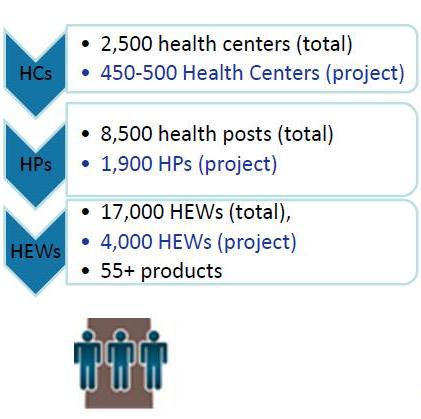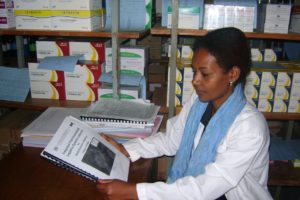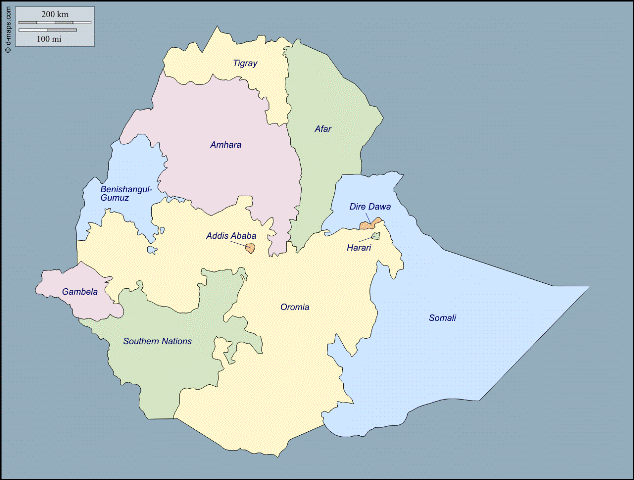CCM in Ethiopia Learn More
ICCM is provided by 23,000 Health Extension Workers (HEWs) who are a paid cadre of community health workers trained to provide 16 packages of preventive and curative health services. Each kebele or village has a health post, manned by 2 HEWs, who manage over 55 commodities.
SC4CCM partnered with the Pharmaceutical Fund and Supplies Agency (PFSA) and the USAID|DELIVER Project to implement interventions in two phases.
Phase I: Increasing national coverage of supply chain knowledge, skills and tools among HEWs to ensure basic processes and competencies are in place to lay the foundations towards a strong supply chain and improved in product availability. To promote the affordability and sustainability of ongoing training, SC4CCM designed a group training approach consisting of IPLS Ready Lesson & Problem Solving modules. The Ready Lessons break down the most important SC skills for HEWs into 1 hour modules that can be combined or taught separately, while the 30 minute problem solving sessions provide supervisors with tools and a standard approach to identify and address common SC challenges.
Phase II: Strengthening implementation of the IPLS pull system for Health Posts to maximize product availability by improving processes and testing the feasibility of an mHealth system for reporting and resupply to improve data visibility. Through ongoing monitoring and support to each step of the supply chain, processes will be adjusted to address challenges and ensure the flow of information and products.
These interventions were designed following a 2010 baseline assessment that identified shortcomings in the community-level supply chain.
To address bottlenecks identified in the baseline assessment, the project developed an Ethiopia-specific Theory of Change that served as the foundation for developing the Intervention Strategy for Improving the Community Health Supply Chain.




